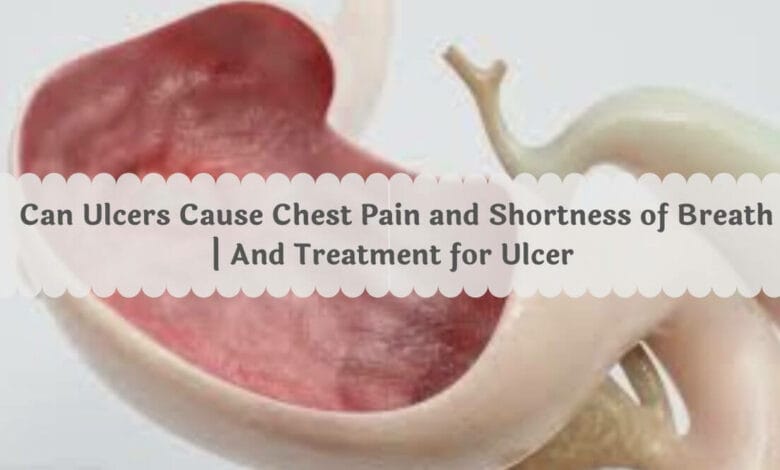Horse ulcers can contribute to head shaking as it can cause discomfort in the horse’s digestive system and lead to behavioral changes. This condition, known as gastric ulcers, can result in head shaking, particularly during feeding or riding. If your horse is displaying signs of head shaking, it’s essential to consult a veterinarian for a proper diagnosis and treatment plan.

The Link Between Ulcers and Head Shaking in Horses
Head shaking in horses is a common and frustrating problem for horse owners and riders. It is characterized by the horse repeatedly shaking or tossing its head, often in an uncontrollable manner. The exact cause of head shaking in horses can be difficult to determine, as there are several possible factors that can contribute to this behavior. One of the potential causes that has been gaining more attention in recent years is the presence of gastric ulcers in horses.
Gastric ulcers in horses: Gastric ulcers are a common condition in horses, particularly in high-performance and stressed individuals. They occur when the protective lining of the stomach becomes damaged or eroded, leading to the formation of painful sores. Gastric ulcers can result from a variety of factors, including inadequate diet, prolonged periods of fasting, stress, and the use of nonsteroidal anti-inflammatory drugs (NSAIDs).
Connection to head shaking: While the direct link between gastric ulcers and head shaking in horses is still being studied, there is a growing body of evidence suggesting a correlation between the two. Horses with gastric ulcers may experience discomfort or pain in the stomach, which can lead to a variety of behavioral changes, including head shaking.
Possible explanations: There are several theories on how gastric ulcers may contribute to head shaking in horses. One possibility is that the pain and discomfort caused by the ulcers can trigger nerve responses that result in head shaking. Another theory proposes that the discomfort from the ulcers may lead horses to engage in head shaking as a way to relieve or distract themselves from the pain.
Managing gastric ulcers in horses: If you suspect that your horse may be suffering from gastric ulcers, it is important to consult with a veterinarian for an accurate diagnosis. Treatment for gastric ulcers typically involves a combination of medication, changes in diet, and management practices. Medications such as proton pump inhibitors or histamine receptor antagonists can help reduce the acidity in the stomach and promote healing of the ulcers. Additionally, feeding horses smaller, more frequent meals and providing access to pasture or turnout time can help alleviate stress and promote a healthy digestive system.
Preventing head shaking: While addressing gastric ulcers is an important step in managing head shaking in horses, it is not always the sole cause. Other factors, such as allergies, dental issues, or neurological conditions, may also contribute to head shaking. Therefore, a comprehensive approach that takes into account all possible causes is recommended. Working closely with a veterinarian and equine professional can help identify the underlying cause of head shaking and develop an appropriate treatment plan.
In summary, there is a growing body of evidence suggesting a link between gastric ulcers and head shaking in horses. Gastric ulcers can cause discomfort and pain in horses, which may lead to behavioral changes such as head shaking. It is important to consult with a veterinarian for an accurate diagnosis and develop a comprehensive treatment plan that addresses the underlying causes of head shaking.

Managing Ulcers to Prevent Head Shaking in Horses
Head shaking in horses can be a frustrating issue for both horse owners and riders. It is a condition characterized by repetitive, involuntary movements of the head, which can greatly affect the horse’s performance and well-being. While head shaking can have various causes, one potential underlying factor that is often overlooked is gastric ulcers. In this section, we will explore the connection between ulcers and head shaking in horses, as well as effective management strategies to prevent and alleviate these symptoms.
The Link between Ulcers and Head Shaking
Gastric ulcers are a common occurrence in horses, particularly those subjected to intense training, high-stress environments, or improper feeding practices. The presence of ulcers in the horse’s stomach can lead to discomfort and pain, manifesting as head shaking behaviors. The act of head shaking is believed to be the horse’s attempt to alleviate the discomfort or irritation caused by the ulcers.
Research has shown that horses with gastric ulcers exhibit increased sensitivity in the trigeminal nerve, which runs through the head and face. This heightened sensitivity can trigger abnormal head movements, including shaking, tilting, or rubbing of the head against objects. Additionally, the pain and discomfort associated with ulcers can affect the horse’s overall behavior, leading to irritability, restlessness, and decreased performance.
Effective Management Strategies
Managing ulcers in horses is crucial not only for their overall health but also for preventing head shaking behaviors. Here are some effective strategies to consider:
- Dietary Modifications: Providing a consistent and balanced diet is essential for ulcer management. Avoid prolonged periods of fasting and ensure a regular feeding schedule. Additionally, incorporating high-quality forage and reducing grain intake can help minimize the risk of ulcers.
- Stress Reduction: Minimizing stressors in the horse’s environment is key to managing ulcers. Provide ample turnout time, access to grazing, and stable companionship. Additionally, implementing relaxation techniques such as regular grooming and massage can help reduce stress levels.
- Medication: In more severe cases, medication may be necessary to treat existing ulcers and alleviate pain. Consult with a veterinarian to determine the appropriate medication regimen, which may include proton pump inhibitors or ulcer-protective agents.
- Supplements: Certain supplements can aid in ulcer prevention and management. Look for products containing ingredients like aloe vera, slippery elm, or deglycyrrhizinated licorice (DGL), as they have been shown to have soothing effects on the stomach lining.
- Saddle Fit and Riding Technique: Ill-fitting saddles or incorrect riding techniques can exacerbate ulcer symptoms. Ensure that the saddle fits properly and opt for riding styles that minimize pressure on the horse’s abdomen and back.
Summary
Managing ulcers in horses is crucial to alleviate symptoms of head shaking and improve overall well-being. By implementing dietary modifications, reducing stress, utilizing medication and supplements, and ensuring proper saddle fit, horse owners can effectively manage and prevent ulcers in their equine companions. It is important to work closely with a veterinarian to develop a comprehensive management plan tailored to the specific needs of the horse.

Effective Treatment Options for Equine Ulcers and Head Shaking
Equine ulcers and head shaking are common health issues that can significantly impact a horse’s well-being and performance. To ensure the proper care and treatment of these conditions, it is important for horse owners and caretakers to have a comprehensive understanding of the available treatment options. In this section, we will explore some effective treatment strategies for equine ulcers and head shaking.
Treatment for Equine Ulcers
Equine ulcers, also known as gastric ulcers, are a prevalent problem in horses, particularly in those involved in high-performance activities. These ulcers occur when the protective lining of the stomach is damaged, leading to discomfort and other associated symptoms. Here are some effective treatment options for equine ulcers:
- Medication: The most common approach to treating equine ulcers is the use of medications that help reduce acid production in the stomach and promote healing of the damaged lining. Proton pump inhibitors, such as omeprazole, are commonly prescribed by veterinarians for this purpose.
- Dietary Management: Proper dietary management plays a crucial role in the treatment of equine ulcers. Horses with ulcers should have access to forage at all times to prevent stomach acid buildup. Feeding smaller, more frequent meals can also help reduce the risk of ulcers.
- Stress Reduction: Stress is a significant factor in the development and exacerbation of equine ulcers. Implementing stress reduction techniques, such as providing ample turnout time, minimizing environmental changes, and using calming supplements, can aid in ulcer treatment.
- Environmental Modifications: Creating a calm and stress-free environment for horses is essential for ulcer treatment. Reducing factors that can contribute to stress, such as excessive noise, overcrowding, and limited turnout, can have a positive impact on ulcer healing.
- Alternative Therapies: Some horse owners may opt for alternative therapies, such as acupuncture or herbal supplements, to complement traditional treatments for equine ulcers. However, it is essential to consult with a veterinarian before incorporating these therapies.
Treatment for Head Shaking
Head shaking syndrome is a condition characterized by involuntary and repetitive head movements in horses, often accompanied by sneezing or snorting. It can significantly disrupt a horse’s daily activities and cause discomfort. Here are some effective treatment options for head shaking:
- Diagnosis: Before initiating treatment, it is crucial to determine the underlying cause of head shaking. Causes can vary, including allergies, dental issues, neurological conditions, or underlying pain. A thorough veterinary examination and diagnostic testing may be necessary to pinpoint the cause.
- Management of Allergies: Allergies are a common cause of head shaking in horses. Identifying and managing the specific allergen can help alleviate symptoms. This may involve dietary changes, environmental modifications, or the use of antihistamines or corticosteroids.
- Dental Care: Proper dental care is essential for overall equine health and can play a role in managing head shaking. Regular dental check-ups and treatments, including floating teeth, can prevent dental issues that may contribute to head shaking.
- Pain Management: If head shaking is associated with pain, addressing the underlying cause and implementing appropriate pain management strategies can provide relief. This may involve the use of non-steroidal anti-inflammatory drugs (NSAIDs) or other pain-relieving medications.
- Alternative Therapies: Similar to equine ulcers, certain alternative therapies, such as acupuncture or chiropractic adjustments, may be considered as complementary treatments for head shaking. However, it is essential to consult with a veterinarian before pursuing these options.
In summary, equine ulcers and head shaking can significantly impact a horse’s well-being and performance. Effective treatment strategies for equine ulcers include the use of medication, dietary management, stress reduction, environmental modifications, and alternative therapies. For head shaking, it is crucial to identify the underlying cause and implement appropriate management techniques, which may include addressing allergies, dental care, pain management, and alternative therapies. Consulting with a veterinarian is essential to ensure the best treatment plan for these conditions.
Preventing and Minimizing the Impact of Ulcers on Horses’ Health and Behavior
Ulcers can have a significant impact on the health and behavior of horses, causing discomfort and affecting their overall well-being. However, there are steps that can be taken to prevent ulcers and minimize their impact. In this section, we will discuss effective strategies for preventing and managing ulcers in horses.
1. Proper Diet and Feeding Practices
The diet and feeding practices of horses play a crucial role in preventing ulcers. Here are some key considerations:
- Provide a diet that includes plenty of high-quality forage. Grazing on pasture is ideal as it allows horses to consume small amounts of food throughout the day.
- Avoid long periods of fasting by providing frequent feedings or access to hay throughout the day, mimicking the horse’s natural feeding behavior.
- Limit the intake of concentrates and high-starch feeds, as they can increase acid production in the stomach and contribute to ulcer development.
- Ensure that the horse has access to clean and fresh water at all times.
2. Stress Management
Stress can be a significant contributing factor to the development of ulcers in horses. Minimizing stressors and providing a calm environment can help prevent ulcers. Consider the following:
- Provide ample turnout time for horses, allowing them to socialize and engage in natural behaviors.
- Reduce environmental stressors such as excessive noise, bright lights, and confined spaces.
- Develop a consistent routine for feeding, exercise, and handling to help horses feel secure and reduce anxiety.
- Use positive reinforcement training techniques to build trust and confidence in horses.
3. Medication and Supplements
In some cases, medication and supplements may be necessary to manage ulcers in horses. Consult with a veterinarian for appropriate treatment options. Some common approaches include:
- Prescription medications such as proton pump inhibitors or histamine receptor antagonists can help reduce stomach acid production and promote healing of ulcers.
- Supplements containing ingredients like glutamine, aloe vera, and slippery elm may help soothe and protect the digestive tract.
- Probiotics and prebiotics can support a healthy gut microbiome and promote digestive health.
4. Regular Veterinary Care
Regular veterinary check-ups are essential for monitoring the health of horses and detecting any potential issues, including ulcers. Here are some important considerations:
- Schedule routine dental exams and floating to ensure proper chewing and digestion of food.
- Discuss ulcer prevention and management strategies with your veterinarian and follow their recommendations.
- If ulcers are suspected, your veterinarian may perform diagnostics such as gastroscopy to confirm the diagnosis and determine the severity of the ulcers.
- Work closely with your veterinarian to develop an individualized treatment plan for your horse.
5. Lifestyle and Environmental Factors
Several lifestyle and environmental factors can impact the development and management of ulcers in horses. Consider the following:
- Provide ample turnout time and opportunities for social interaction with other horses.
- Ensure horses have access to shelter and protection from extreme weather conditions.
- Minimize the use of non-steroidal anti-inflammatory drugs (NSAIDs) as they can increase the risk of ulcers.
- Monitor and manage workload and exercise intensity to avoid excessive physical stress.
In summary, preventing and minimizing the impact of ulcers on horses’ health and behavior requires a holistic approach that includes proper diet and feeding practices, stress management, appropriate medication and supplements, regular veterinary care, and consideration of lifestyle and environmental factors. By implementing these strategies, horse owners can help ensure the well-being of their equine companions and reduce the risk of ulcers.
FAQs
Can ulcers cause head shaking in horses?
Yes, ulcers can be a potential cause of head shaking in horses. When horses have gastric ulcers, they may experience discomfort and pain, which can manifest as head shaking. It is important to consult with a veterinarian for proper diagnosis and treatment.
Conclusion
In conclusion, while ulcers in horses can cause a range of symptoms, such as poor appetite, weight loss, and changes in behavior, head shaking is not typically considered a direct symptom of ulcers. Head shaking in horses is a complex condition that can have various underlying causes, including allergies, neurological issues, or dental problems. It is important for horse owners to consult with a veterinarian to accurately diagnose and treat head shaking in horses. Proper management, including a balanced diet, stress reduction, and appropriate medical intervention, can help alleviate ulcers and improve the overall well-being of the horse.
